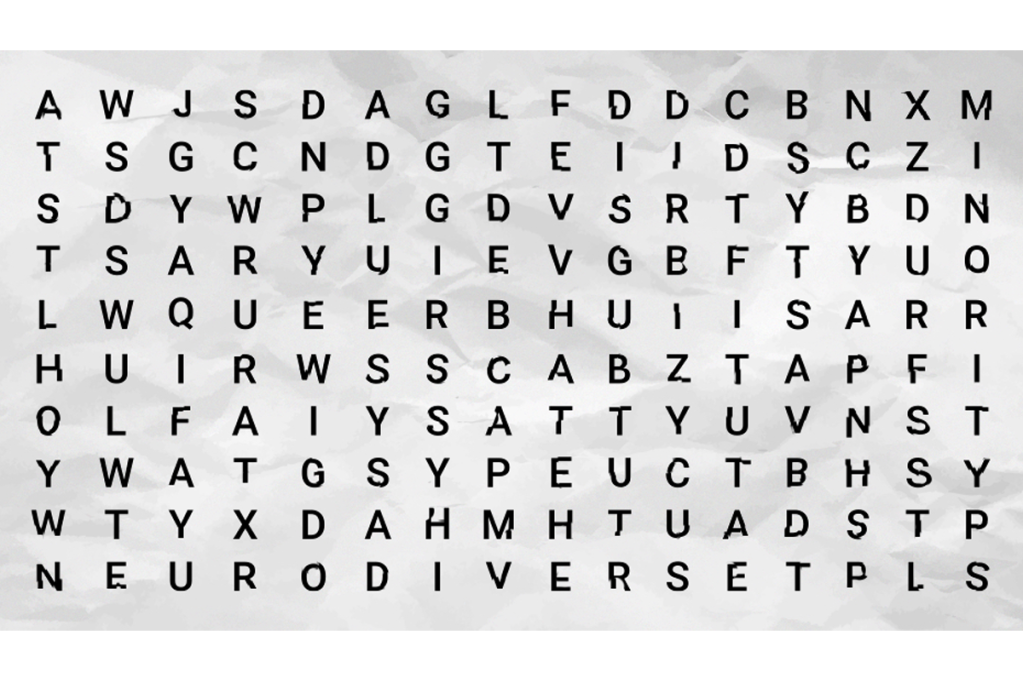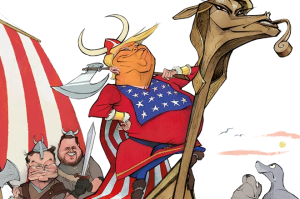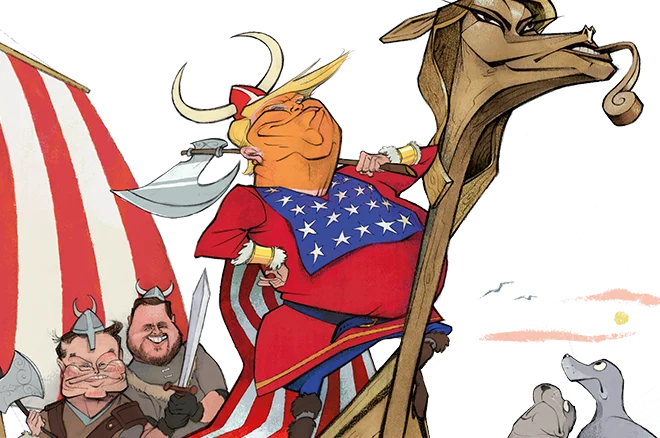North America’s Ecology and Evolutionary Biology Language Project has released yet another list of Bad Say. Scientists are to swap “male” and “female” for “sperm-producing” and “egg-producing” — as presumably most biologists are stuck in remedial learning and haven’t yet got to the chapter explaining that humans come in only two sexes. But rather than opt for another chortle at these petty rhetorical tyrants’ expense, I’m regarding turnabout as fair play. Behold, a by no means complete list of the expressions I’m banning right back.
‘Black and brown bodies’
A bizarrely dehumanizing reduction of people to biomass, often disconcertingly employed by the very folks in possession of said black and brown bodies. If others control or injure your body, they control or injure you. A person is a sentient being; a body is a thing. A person, once dead, as far as we know, is gone; a body can be a corpse. How this expression is meant to dignify minorities is anyone’s guess.
‘People who look like me’
A wordy, childish reference to others of one’s own race, although any white student who insisted on a syllabus full of books by “people who look like me” would probably get arrested. This weird euphemism for, if you will, “black and brown bodies” bespeaks a telling reluctance to insist outright, say, that you wish only to read books by authors of your own race, or that the mutual humanity of authors of other races is insufficient to conceivably find their work germane to your specially black or brown life. Doesn’t sound as innocent put like that, does it?
The ______ ‘community’
One of the most misused words of recent decades. By inference, memberships of identity groups such as Asians, the disabled or an alphabet soup of disparate sexual minorities are so palsy and kindred that they effectively form neighborhood associations, replete with treasurers, secretaries to take minutes at meetings and bake sales. My experience suggests otherwise. Affluent black families in six-bedroom McMansions in Atlanta whose kids are in private schools have precious little in common with black families in southside Chicago whose kids are in drug gangs. Despite this glaring apples-and-oranges problem, non-members often pander to some “community” because the word sounds deferential and respectful. Interestingly, no one seems to refer to the “white community.” At least in this regard, convention is spot-on. “White” people have nothing intrinsically in common and famously divide into fractious, antagonistic factions. No bake sales.
;768:[300×250,336×280,320×100];0:[300×250,320×100,320×50]”]‘Hate’
The whole world opposes it, no one defends it — so why are we obsessed with it? The strangely babyish and hyperbolic usage of “hate” has dissociated the word from a real but surprisingly rare emotion. At its strongest, today’s “hate” translates as “mild dislike” or “misguided prejudice”; “hate speech” translates as “faux pas.” But hatred — a word I prefer, as it may retain a modicum of its original meaning — is a virulent, volatile, all-consuming sensation that directed at an individual can even lead to murder. Me, I mostly “hate” abstractions, or public figures I don’t know (Kamala Harris, Putin), who are also abstractions. Faced with flesh-and-blood people, I seldom marshal any feeling fiercer than eye-rolling despair.
‘Pain’ and ‘harm’
Likewise alienated from their dictionary definitions. In left-wing circles, “pain” and “harm” never entail physical agony or palpable injury. When used to successfully blackmail purported transgressors against the left’s Little Red Book, these howls of unbearable suffering reliably conceal triumph and glee. Scrambling personal and corporate apologies for the “pain” caused by minor infractions of progressive dogma merely incentivize more disingenuous predation and emotional fraudulence.
‘Minoritized communities’
This is a new one, and it’s suddenly everywhere. Overnight “minoritized communities” replaced the expression “marginalised communities.” “Minoritized” suggests that these sub-populations have been maliciously diminished by some alien force, as if in a nationwide remake of Honey, I Shrunk the Kids. Absent this killer ray, presumably these sub-populations would constitute the vast popular majority. While the indigenous Americans and African slaves of centuries past might awkwardly be characterized as having been “minoritised,” today’s immigrants could only qualify as having “minoritized” themselves. Vaguely accusatory, this most cutting-edge progressive coinage implies some unspecified demographic holocaust, the culprits unnamed.
The ‘global majority’
A euphemism for the “non-white.” Truth in advertising: say the “non-white.”
‘Queer’
A subversion of a pejorative into a badge of pride with which I’m fine in theory, but the refurbishment of this slur feels inorganic. The catch-all has been imposed from the academic heights rather than bubbling up from popular culture. Many gay men, especially older ones, despise this term and still react to it with a wince. “Queer studies” having become an established university discipline, it’s doubtless too late, but I’d happily return the Q-word to meaning “odd.”
;768:[300×250,336×280,320×100];0:[300×250,320×100,320×50]”]‘Lesbian’
Perhaps this is none of a straight writer’s business. Still, when widely adopted in the 1970s, “gay” referred to men and women both. Then, somehow, the men absconded with it (and wouldn’t they, now). Free of baggage beyond its initial meaning of light-hearted, “gay” has been a great linguistic success story. If I were attracted to women, I’d insist the blokes share “gay” again; to my ear, “lesbian” is just an ugly word.
‘Heteronormative’
Always employed critically, for the left now opposes the very concept of norms. Yet nature, to which progressives pledge such fealty, has norms galore. Were men having penetrative sex with women not the norm, our species would be minoritized.
‘Neurodiverse’
Meant to convey that diagnoses of autism, depression, anxiety, OCD or bipolar disorder etc merely mean you’re contributing your valuable perspectives to our gloriously various world. Produced by the neurotically neutral mentality whereby no difference puts you at a disadvantage, therefore a terminology promoting a blatant lie. “Diversity” having become the highest of social goods, “neurodiversity” opens the way to demands that a proportion of every workforce is schizophrenic. Prefer “mentally ill?” Oh no! That’s on the opposition’s banned list! Tough.
This article was originally published in The Spectator’s UK magazine. Subscribe to the World edition here.

























